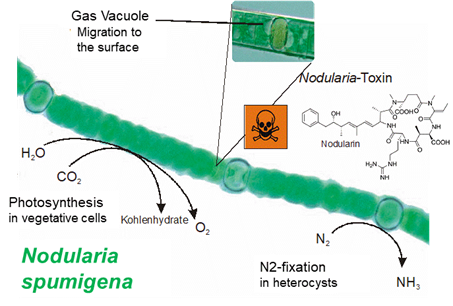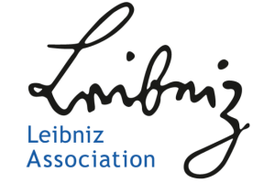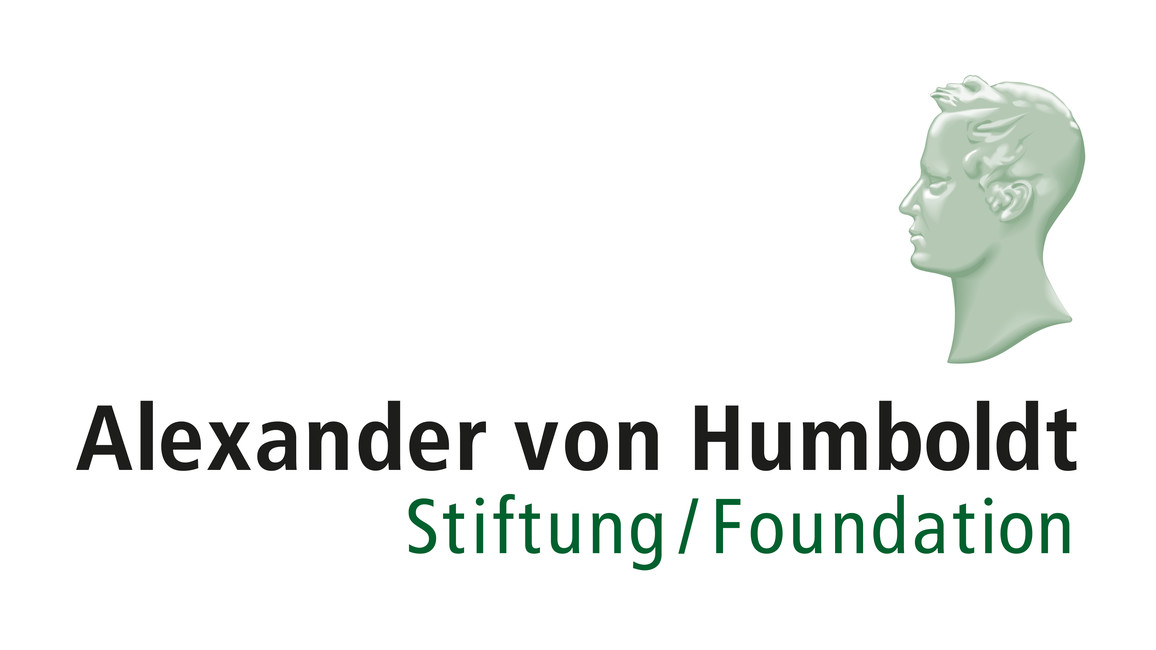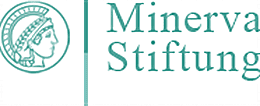7. Leibniz-Society–supported project in the Science Campus Phosphorus Research Rostock (P-Campus)
Subproject: The role of inorganic phosphate supply on the development of cyanobacterial summer blooms in the Baltic Sea (joint project together with Prof. Matthias Labrenz, IOW, project period 2019-2022)

Cyanobacteria are main part of the phytoplankton in the Baltic Sea. Especially during the summer, large cyanobacterial blooms can occur in the central parts of the Baltic Sea. Nodularia spumigena strains are often dominating such blooms and due to their toxicity, the cyanobacterial bloom events are also of environmental and social concern. The availability of inorganic phosphate is assumed to play a crucial role in the triggering of cyanobacterial bloom formation and there are also conflicting results in the literature that the production of toxin nodularin might be also regulated by P availability. Furthermore, genome annotation and subsequent physiological investigations revealed that Nodularia spp. can use a great variety of P sources. In our project, we will investigate on molecular level, how N. spumigena responds to different phosphate regimes and phosphate sources. The group at UR will investigate the regulation of phosphate-responsive genes with the model strain N. spumigena CCY9414, which has been isolated from Baltic Sea summer blooms and for which the complete genome is available. The group at IOW will analyze gene expression levels in situ, i.e. they will compare differential gene expression patterns in cyanobacterial cells from the water column and the upper layer in the developing bloom.







